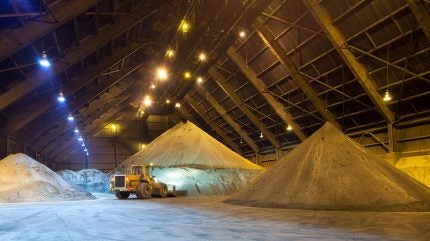
Indonesia’s Internal Affairs Minister Tito Karnavian has urged the country’s mining ministry to consider lifting the export ban on copper concentrate specifically for Amman Mineral International.
This request comes in light of the negative economic impact the ban has had on the Nusa Tenggara Barat province, where Amman’s operations are central to the local economy, reported Reuters.

Discover B2B Marketing That Performs
Combine business intelligence and editorial excellence to reach engaged professionals across 36 leading media platforms.
The province experienced an annual contraction of 1.47% in the first quarter, significantly influenced by Amman’s inability to export its copper concentrate.
In February, Amman reported having approximately 200,000 tonnes (t) of concentrate inventory ready for export.
“I have asked the energy and mineral resources minister whether there is a possibility to allow exports while we are waiting for the smelter to be completed,” Tito was quoted as saying during a government meeting.
Indonesia’s policy to ban the export of copper concentrates and other raw minerals was implemented to promote domestic metal processing.

US Tariffs are shifting - will you react or anticipate?
Don’t let policy changes catch you off guard. Stay proactive with real-time data and expert analysis.
By GlobalDataAlthough the ban took effect in mid-2023, Amman was granted permission to continue exporting until December 2024, aligning with the expected commissioning date of its smelter, which will process concentrates into copper cathodes.
In March, the company announced the production of its first copper cathode from the new smelter. However, the 220,000tpa facility has not yet reached full capacity due to technical issues.
Amman spokesperson Kartika Octaviana was quoted as saying: “Government’s discernment and policy flexibility, especially regarding copper concentrate sales, will greatly assist the company in maintaining financial strength while seeking to optimise the smelter.”
In a different development, the Association of Indonesia Nickel Miners (APNI) has voiced concerns over the government’s plan to shorten the validity of mining quotas from three years to one.
This move, intended to regulate supply and support commodity prices, has been met with opposition from APNI, which fears it could result in bureaucratic delays and negatively affect the sector’s stability.



